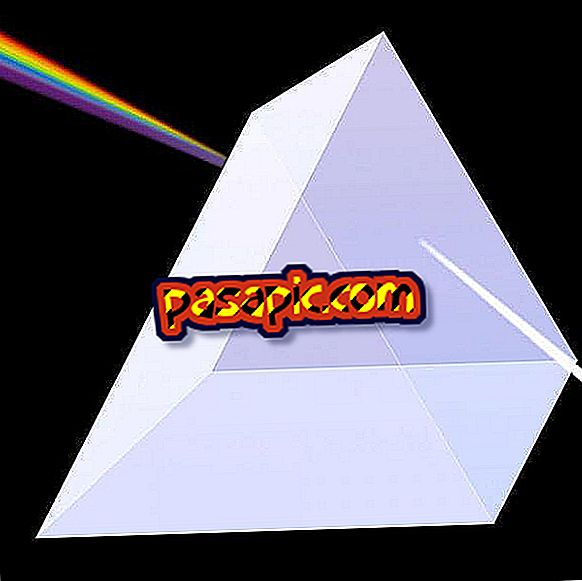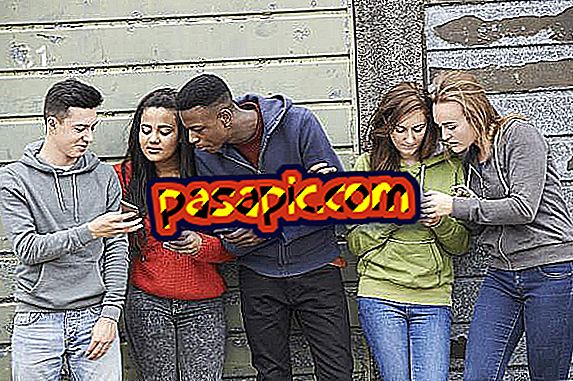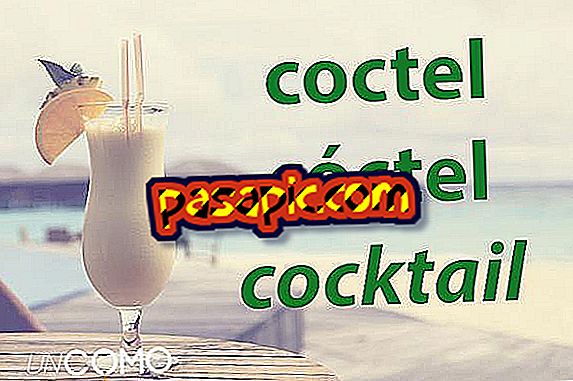Why dogs eat poop

Have you noticed that your dog eats the droppings of other dogs from home or on the street, your own or even other animals? It is totally normal that this is very rare and produces rejection and disgust, because for people it is a totally abnormal behavior. However, many animal species do so for different reasons related to survival, such as hygiene of their environment or food.
In we help you understand the possible causes of your question about why dogs eat poop, as well as yours or other species. However, it will be a veterinarian who will be able to diagnose the physiological cause and give the best treatment and, on the other hand, if it is a behavioral aspect, then it will be a canine ethologist, trainer or educator who can give a diagnosis and a solution.
What is coprophagia and when is it a problem
The coprophagy or eating feces, own or other beings whether they are of the same species or if they are of another, is an animal behavior that can be completely natural in certain cases, such as insects that basically feed on excrement or other animals, like elephants or other mammals, in some special situations. Such is the case of animals that eat excrement due to the reuse of nutrients, such as fiber and water, because in their habitat there is a shortage of food or lactating females that clean the nest, etc., in short, they are situations necessary for survival .
Specifically in the case of dogs, and other canid species such as wolves, jackals, coyotes, etc., occurs naturally but sporadically in the following situations:
- Puppies that explore their environment (up to 3 or 4 months).
- Nursing bitches to maintain hygiene in the nest in which their puppies are, avoiding foci of infections and attract predators.
- They live in areas that are very dirty and this is one of the ways they have to clean the place. Mostly it happens when they start to form a burrow or nest.
- Some may be attracted to the smell and taste of some feces that the animal that I have deposited has eaten, because there are odors that indicate the presence of certain nutrients that the dogs can reuse very well.
Instead, it is a physical or mental health problem, which can be reflected along with other organic problems or other behavioral or behavioral problems, when it is about dogs that are older than 4 months and that are not females with suckling pups or are not in an impoverished and dirty environment.
Later, we clarify the main causes of coprophagia in dogs when it occurs due to physical and / or mental health conditions.

Symptoms of coprophagia in dogs
Apart from seeing him eat feces, there are more symptoms of coprophagia in dogs such as:
- Bad breath or halitosis.
- Thinness or weight loss, even if you eat a lot, due to malnutrition.
- Polyuria or urinating more than usual.
- Polydipsia or drinking more water than normal.
- Notable changes in bowel movements, such as pooping is softer, smells worse than usual and there is more fat and / or mucus.
- Gastroenteritis due to the irritation and inflammation suffered by the mucous membranes of the stomach and intestines.
Before the appearance of any of these symptoms or several, it is vital to first go to the vet to find the cause and if it is a physical or organic problem this will offer the best treatment for each case, instead if the specialist rules out the problems physical and considers that the underlying cause is mental, emotional or behavioral, we must go to a canine ethologist, educator or trainer to find the source of the problem and, observing the general picture, can offer the best solution for each situation.
It is necessary to stress that it is vital to treat this problem because a dog eating poop from another dog or other animals implies a high risk of contagion of a variety of parasites (bacteria, fungi, worms, etc.) and other types of diseases, some of them they are very serious (especially viral ones such as parvovirus or distemper), which can seriously jeopardize their health and also those who live with it (other animals and people).

Diagnosis of coprophagy in dogs and its cause
In order to determine the cause in each situation, the veterinarian will have to ask the animal's caregiver a series of questions and perform several tests, such as basic recognition physical examination, x-rays, blood tests, and so on. So, it is good that if we suspect that our dog eats excrement, or we have seen it done, we look at a number of aspects to be able to explain them to the veterinarian in detail. For example, you can ask us and perform tests to know aspects such as the age of the dog, if it is female if it is lactating, if it is a dog that spends a lot of time alone (8 hours or more a day), if it lives in a place adequate and not lacking in hygiene, if it is well nourished, if it has any disease, if we have detected a specific situation in which it reacts by eating stools or if it does not occur in a specific context, et cetera.
Once the specialist has all the necessary information you can reach a diagnosis of the cause and give an appropriate treatment or refer an ethologist, or a similar professional, if the problem is not simply physiological or organic.
Why dogs eat poop - the causes
These are the main causes of a dog eating the poop of another dog, his or other animals:
Breeding bitch that eats the cows of their puppies
As we have already pointed out before, this is a case of natural and punctual coprophagy, that is, it is produced by a survival issue, in this case hygiene that will avoid health problems, such as infections, as well as the attraction of predators. Therefore, it is not a bad thing if your dog that is nursing its puppies in its nest or bed eats the poop of their little ones and even their own. Therefore, it is not a behavior that we have to punish.
Simply, to avoid it, the best thing is to help keep the area clean, but remember that it is not advisable that you handle excessively newborns, stress them or use cleaning products in this area. It is best to remove the stool as soon as possible.
Pup who eats his stool
We had also noted before that a normal situation of this behavior is when it comes to puppies of up to 4 months. Keep in mind that it is a stage in which they are discovering all kinds of things and that dogs mainly use the sense of smell, which is linked to the flavor, so it is not surprising that when exploring their environment try the things that they are finding, including small objects, remains of food, clothes, feces, among many other things.
As it is an exploratory and learning behavior, it is normal for it to end on its own after a time, around 4 months in the case of dogs, although it may last a little longer. This behavior is especially noticeable in puppies that are found in places with a poorly enriched environment and, due to lack of stimulation and environmental enrichment in general, they end up playing with the excrement and eating it.
Conditions and diseases
Some diseases, pathologies or conditions can cause this behavior in the dogs, which becomes a striking symptom of them. For this reason, it is vital that before thinking that it is a behavioral problem due only to a mental or emotional health problem, consider discarding before, through the veterinarian, the possible diseases and conditions that cause coprophagia in dogs such as :
- Intestinal malabsorption syndrome.
- Exocrine pancreatic insufficiency.
- Malnutrition by giving few foods and / or of bad quality for their needs.
Stress and anxiety
Of course, this is one of the main causes of strange behavior in both animals and people, because it involves great emotional, mental and physical discomfort. Dogs that suffer stress and anxiety can have a variety of behaviors and coprophagia is one of them.
We help you to know if the situation of your furry can be with this other article about How to know if my dog is stressed.
Poor hygiene of the environment
As we have already indicated, an inadequate and unhygienic environment will cause the dog to end up eating his feces and those of others to try to eliminate this problem, both for physical and mental health, as poor hygiene in the environment is a focus of attention. possible infections and other health problems, as well as stress, anxiety and emotional distress. Therefore, if a dog lacks hygiene in its home, it will not take long to try to solve it on its own, no living being likes to have its dirty burrow.
If your dogs often do their needs at home, in or out in the garden, and therefore there are often enough feces and some of them eat them, think about cleaning more often and take them out more often outside the house so that your Dogs do their needs outside.
Loneliness and lack of stimuli
If a dog feels lonely and / or bored, he will begin to investigate his surroundings and explore and try everything he finds, including eating excrement. Also, you may end up eating stools if you are in a state of depression and boredom.
Therefore, if your dog is many hours alone at home it is easy that due to this loneliness begins to have this behavior that we dislike, as well as others that do not usually seem good (like breaking furniture, urinating and defecating where you do not usually do, barking and cry a lot, etc.). This is worse if he has a poorly enriched environment, that is, if he lacks stimuli such as food, toys or the company of other animals.
It is vital that you spend as much time as possible with him and that you provide him with these stimuli for his good mental and physical health. If you meet these aspects and this was the only cause of coprophagia, you will see that your hairy does not do it in a short time.
A dog can eat poop to get attention
This, according to experts in canine ethology, is one of the most frequent causes for which a dog eats poop of another dog or his own. Thus, the dog eats the excrement with the intention of being ignored and this happens in cases in which the socialization of this by their caregivers has been poor, they hardly pay attention to it (they do not play with it, they do not they take a walk or do little, etc.) and even when they do something wrong they are punished.
We punish him when he defecates where we do not want
This is a very common cause and, in turn, it is a very common mistake that we make by dog handlers. So, if you wonder why my dog eats poop or poop and you are reviewing this list of possible causes of coprophagia in dogs and until here none of you ends up fitting the situation of your hairy, then review how you have taught him to do his needs where you wanted (either on the street or in a specific area of the house). If one of the things you have done has been to catch him and bring his nose close to the excrement by saying or shouting a "no" or a "what have you done?" Forceful, then at this point you have made a mistake in his education.
Why? Well, because he notices that you are very angry and in future occasions to avoid punishment, he eliminates the problem by eating his stools or, even, he may have interpreted these gestures as if you think it is okay or you want him to eat his stools and That seems right to you. When a dog is taught where to have his needs done, it is not necessary to use punishment, but positive reinforcement, that is, to offer him adequate options, taking him out several times to walk and reward him when he does well.
Pica syndrome in dogs
This is a behavioral disorder that occurs when the dog feels a need for him irremediable to eat everything that is within his reach that is not really edible, that is, to peck and go ingesting objects such as small toys, jewelry, poops, stones, garbage, etc.
Although it can be considered normal in puppies for its exploratory instinct, as we have already mentioned, up to 4 months, it is not a normal behavior in older dogs. It can occur for various reasons such as anxiety, stress, a very dirty or neglected environment, and so on.
Some dogs eat other feces because they like them
In the case of canids, both dogs and other species, it is usual to eat excrements from others of the same species or from other animals because they may like it because they still contain certain nutrients and, therefore, odors and flavors, they are attractive because they are necessary for them.

How to prevent dogs from eating poop
Now that you know the possible causes that answer your question about why dogs eat poop, their own or other animals such as cats, rabbits, sheep, goats, cows, horses, etc., we want to explain the best ways to avoid Let your dog eat feces :
- Watch over the food you offer to your dog, reviewing if it meets your actual food needs (according to age, health status, etc.) and distributes the food takes several times a day (between 2 and 3 times).
- Take it out more to walk around so that it is related to more animals and people, so that it sniffs more environments, etc., thus enriching its environment and development.
- Exercise more with him, both inside and outside the home, because he will feel better and less likely to feel frustration or stress of some kind and, therefore, behave like coprophagy. In this other article we tell you How to exercise with my dog at home.
- Enrich your environment at home by offering more play spaces, more toys and that are a challenge for him as the kong, more activities, sounds, games with you, etc.
- Think about if you can and would like to take care of another animal compatible with your dog, be it another dog or a cat for example, because it could be a great life companion for him, to play or explore the environment, not feel alone the hours you are not with him, walking and interacting with other animals together, etc. However, it is a decision that must be considered very carefully because it implies more responsibility.
- Clean the poop right away and this way you will avoid eating it and over time you will lose interest in eating it.
- Keep the space in which your dog lives well and try to have your drinker and feeder clean, without using aggressive products, as well as having always clean and fresh water, that your bed is also as clean as possible, etc.
- Do not punish him when he does something wrong and use positive reinforcement when he does things well, so he will learn much better and faster.


